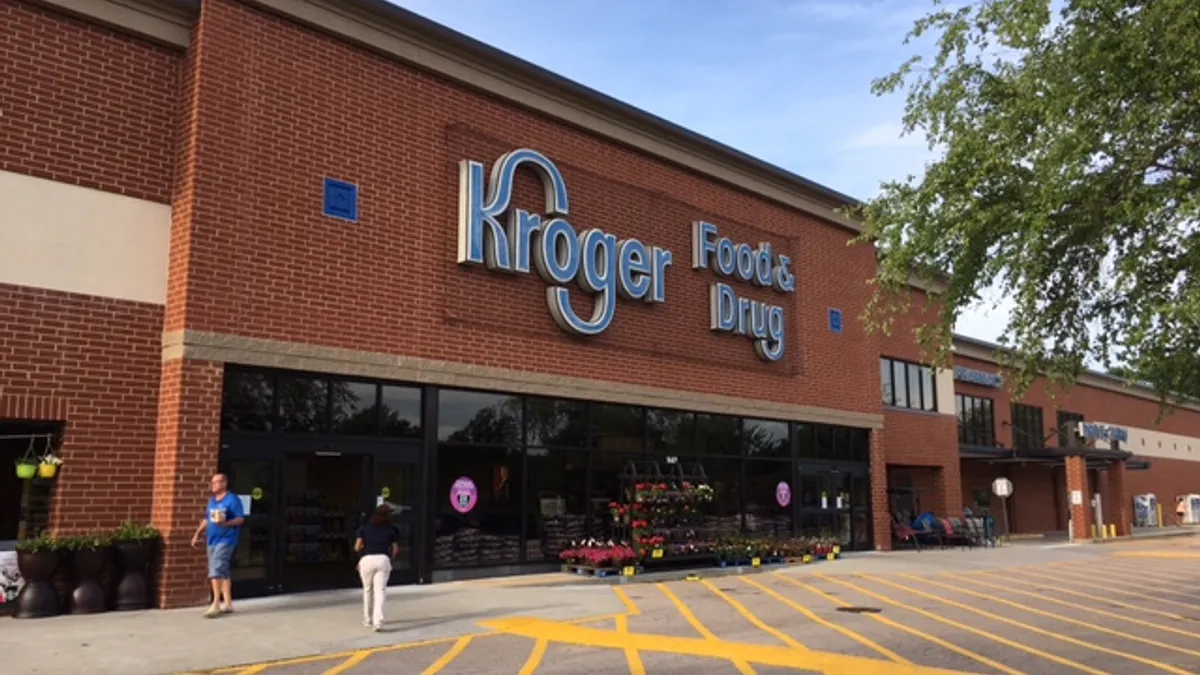Dive Brief:
- Kroger announced the formation of PearlRock Partners, a platform that will find and invest in promising new consumer products.
- The new venture, which Kroger is undertaking in partnership with private equity firm Lindsay Goldberg, will become part of the grocer’s growing alternative investment portfolio and will utilize the chain’s data and merchandising expertise.
- “We are confident this partnership with Lindsay Goldberg will help discover and cultivate new brands that Kroger customers will love,” said Stuart Aitken, Kroger’s senior vice president of alternative business and CEO of 84.51°, in a statement. “We are transforming from grocer to growth company by deploying our assets to serve even more customers and create margin-rich alternative profit streams.”
Dive Insight:
Kroger has shown it has a hot hand in private brand development, with market share of its Own Brands recently surpassing 30% unit sales share. Now, it wants to identify and accelerate brands outside its corporate structure.
The company’s supplier development efforts have grown in recent years. Beginning in 2017, Kroger hosted semi-annual natural food innovation summits, where cottage suppliers could swap ideas and pitch their products to company buyers. The grocer also beefed up its local sourcing efforts, establishing among other measures an online product submission portal aimed at start-ups.
These efforts took flight after Amazon bought Whole Foods, as Kroger looked to set itself apart from the specialty retailer that was set to move mainstream. If Kroger can effectively funnel new investments onto its shelves, PearlRock Partners could also help it differentiate from Whole Foods, which has so many stores in close proximity to the nation’s largest grocer.
Ultimately, investing in start-up brands promises to bring in new revenue and give Kroger an inside track on promising new products. As legacy CPG companies have struggled, challenger brands have made inroads into stores. Between 2013 and last year, according to IRI, $17 billion in sales shifted from large CPG companies to smaller suppliers. This has pushed retailers to adopt these brands and to lock down exclusives that differentiate them from competitors.
Retailers across the industry have beefed up their outreach and discovery efforts centered on small brands. Target runs an accelerator program while Walmart and H-E-B both run new-product contests that generate media buzz and award winners space on store shelves. On the manufacturer side, companies like General Mills and Kraft Heinz have launched incubators that tap into trendy upstart products.
PearlRock Partners joins a growing list of alternative investments for Kroger as its core grocery business struggles with profitability. This includes everything from online advertising to licensing its store technology. The retailer now positions itself as a growth company that also sells groceries, but analysts are skeptical of its ability to overcome the pressures facing that core business.













